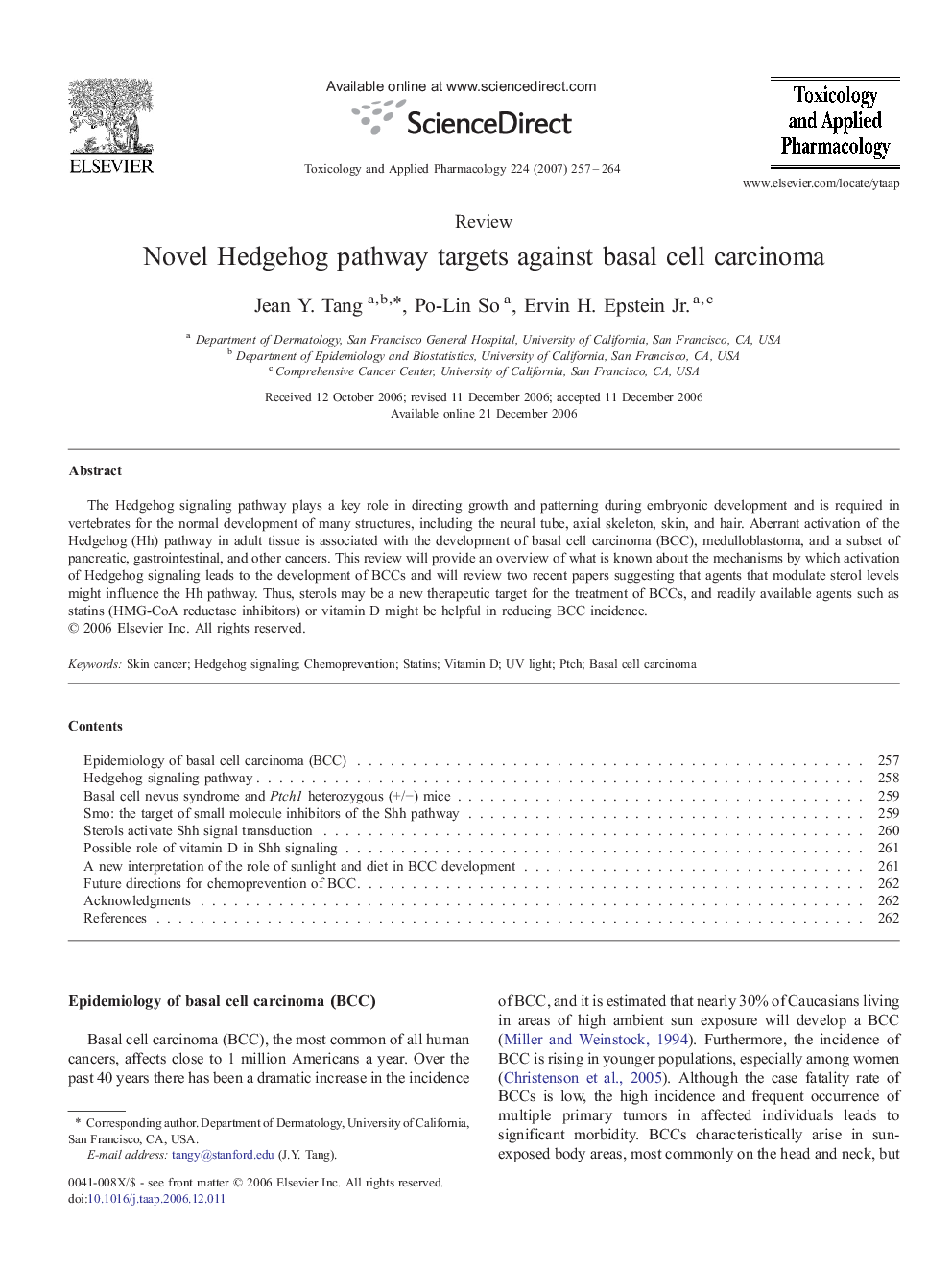| Article ID | Journal | Published Year | Pages | File Type |
|---|---|---|---|---|
| 2571668 | Toxicology and Applied Pharmacology | 2007 | 8 Pages |
The Hedgehog signaling pathway plays a key role in directing growth and patterning during embryonic development and is required in vertebrates for the normal development of many structures, including the neural tube, axial skeleton, skin, and hair. Aberrant activation of the Hedgehog (Hh) pathway in adult tissue is associated with the development of basal cell carcinoma (BCC), medulloblastoma, and a subset of pancreatic, gastrointestinal, and other cancers. This review will provide an overview of what is known about the mechanisms by which activation of Hedgehog signaling leads to the development of BCCs and will review two recent papers suggesting that agents that modulate sterol levels might influence the Hh pathway. Thus, sterols may be a new therapeutic target for the treatment of BCCs, and readily available agents such as statins (HMG-CoA reductase inhibitors) or vitamin D might be helpful in reducing BCC incidence.
